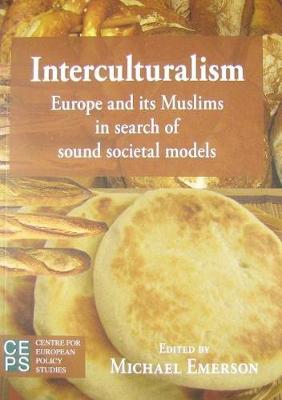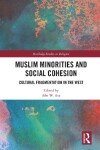This book addresses the single most important set of societal tensions in modern Europe: that between the new Muslim minorities and the majority populations. While there are disturbing advances in the popularity of extreme right parties, governments and mainstream civil society organizations are hard at work trying to resolve or at least ease these tensions with carefully calibrated policies that increasingly amount to a middle way between the polar opposites of assimilation versus multiculturalism. The political struggles over these divergent approaches are far from over.
The book surveys these tendencies in a series of comparable case studies (Belgium,...Read more
This book addresses the single most important set of societal tensions in modern Europe: that between the new Muslim minorities and the majority populations. While there are disturbing advances in the popularity of extreme right parties, governments and mainstream civil society organizations are hard at work trying to resolve or at least ease these tensions with carefully calibrated policies that increasingly amount to a middle way between the polar opposites of assimilation versus multiculturalism. The political struggles over these divergent approaches are far from over.
The book surveys these tendencies in a series of comparable case studies (Belgium, Great Britain, the Netherlands, Germany, and Spain). It concludes by identifying the emergence of an intercultural hybrid model somewhere between the polar cases. The book works through what this means in terms of precise policy mechanisms, including the EU's new line of integration policies.
Contributors include Patricia Benuzuarte (La Fundación Pluralismo y Convivencia, Madrid), Sergio Carrera (CEPS), Andreas Hieronymus (Institute for Research on Migration and Racism, Hamburg), Theo Koutroubas (Université de Louvain-la-Neuve, Belgium), Nina Muehe (European University Viadrina, Frankfurt), Titia van der Maas (Leiden University), Tinka Veldhuis (University of Groningen), Ward Verploegs (University of Leuven), and Zeynep Yasnamayan (CEPS and University of Leuven).
The book surveys these tendencies in a series of comparable case studies (Belgium, Great Britain, the Netherlands, Germany, and Spain). It concludes by identifying the emergence of an intercultural hybrid model somewhere between the polar cases. The book works through what this means in terms of precise policy mechanisms, including the EU's new line of integration policies.
Contributors include Patricia Benuzuarte (La Fundación Pluralismo y Convivencia, Madrid), Sergio Carrera (CEPS), Andreas Hieronymus (Institute for Research on Migration and Racism, Hamburg), Theo Koutroubas (Université de Louvain-la-Neuve, Belgium), Nina Muehe (European University Viadrina, Frankfurt), Titia van der Maas (Leiden University), Tinka Veldhuis (University of Groningen), Ward Verploegs (University of Leuven), and Zeynep Yasnamayan (CEPS and University of Leuven).
- ISBN13 9789461380517
- Publish Date 30 July 2011
- Publish Status Active
- Publish Country BE
- Imprint Centre for European Policy Studies
- Format Paperback
- Pages 150
- Language English






